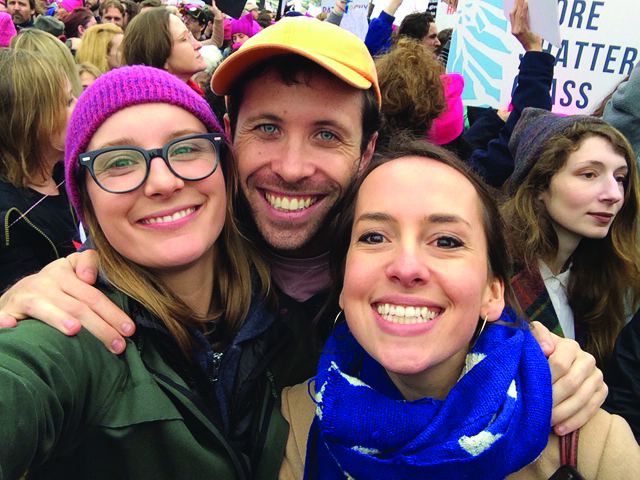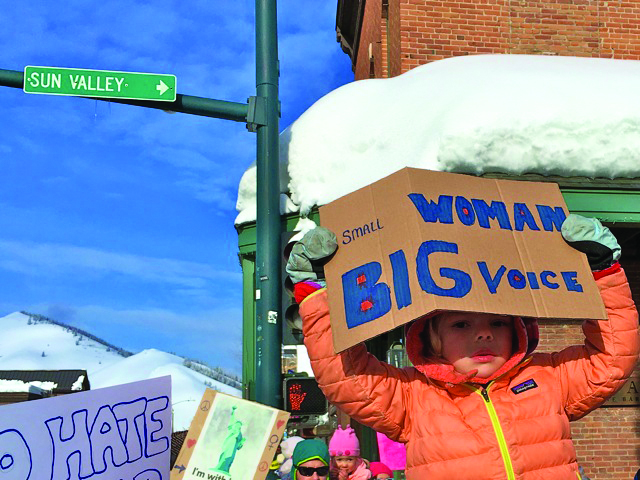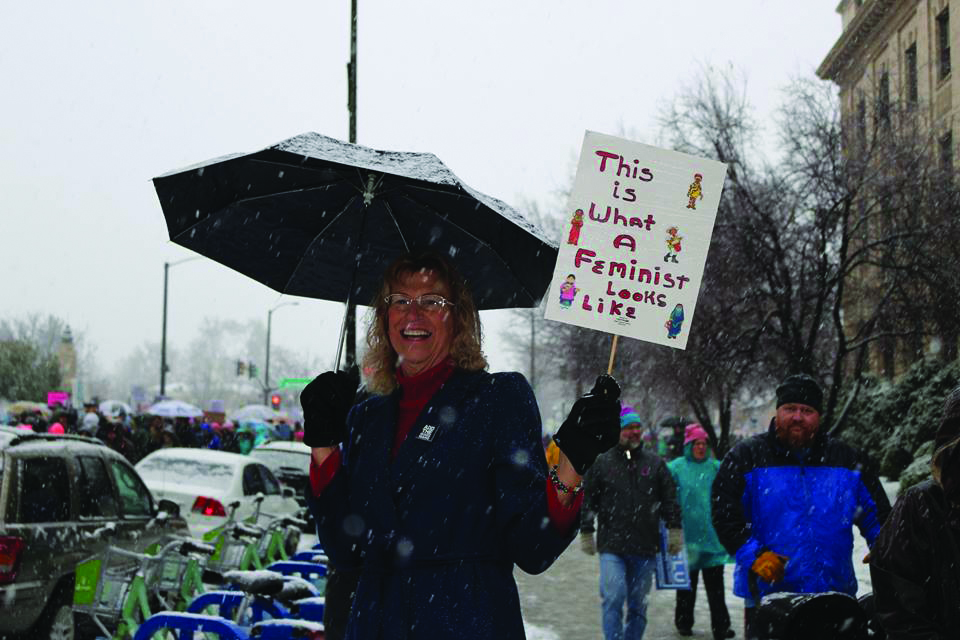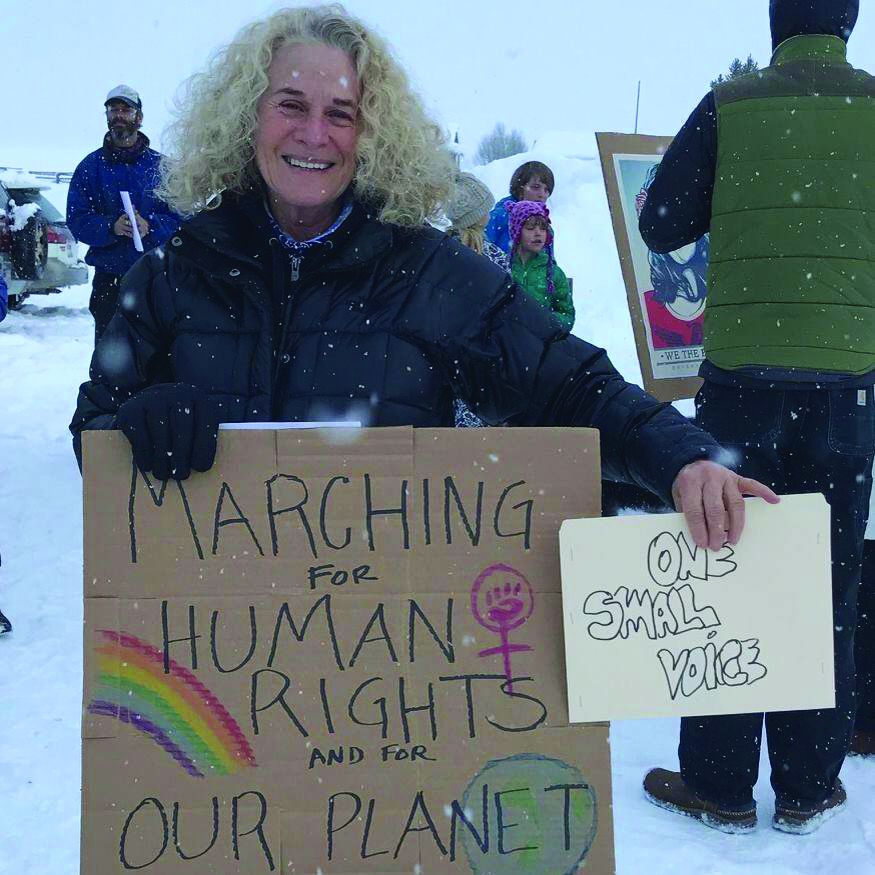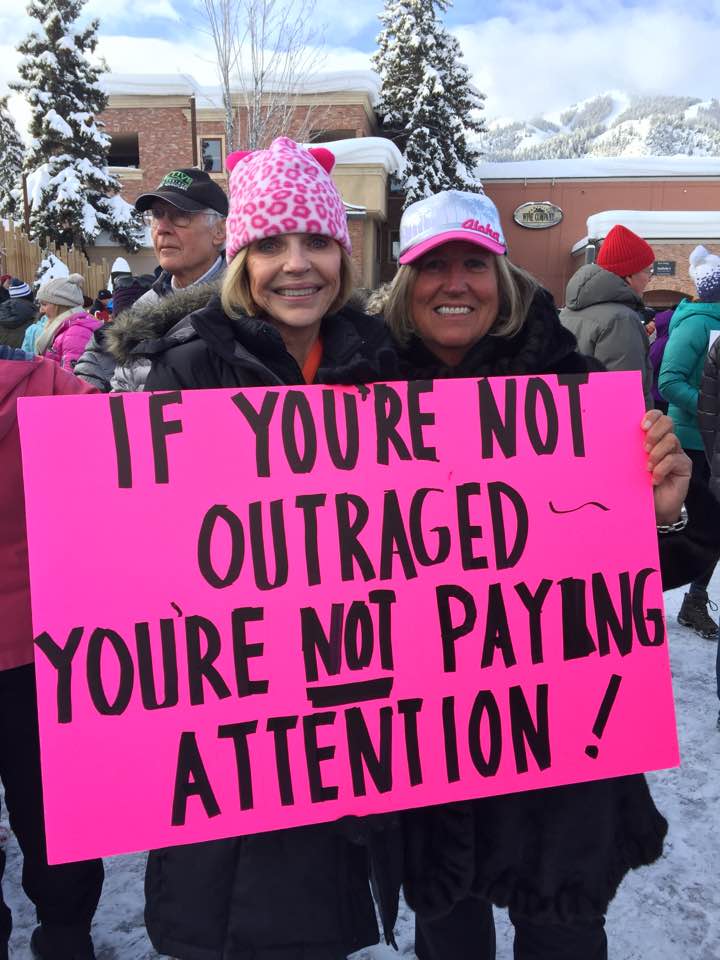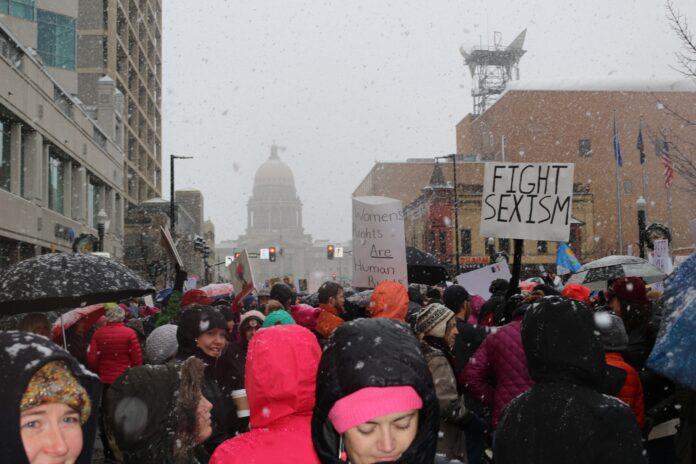Nine marches were held in Idaho
By Dana DuGan
Though underreported by the national press, the Women’s March on Idaho, held Saturday, Jan. 21, in Boise, attracted nearly 10,000 people of all ages, gender, persuasion and backgrounds. Clad in costumes, pink hats and weather-appropriate gear, Idaho women, men and children marched through a cold, wet snow, joining millions of others around the world.
Through signs and chants, marchers supported everything from LGBTQ rights to women’s healthcare, education, equal pay, support for refugees and public land.
Organized by Boise high school students Colette Raptosh and Nora Harren, the march proceeded from the Idaho State Capitol, south on 8th Street, before turning east on Main Street and regrouping on 9th Street in front of Boise City Hall between Idaho and Main streets.
Speakers included the Senate Assistant Minority Leader Cherie Buckner-Webb, LGBTQ activist Dianne Piggott, State Representative Melissa Wintrow, former House Minority Chief of Staff Jen Martinez, and Asmaa Albukaie, Idaho’s first Syrian refugee.
Raptosh said Idaho isn’t always known for its support for diversity and tolerance, but the march proved it exists.
Though Idaho is a deeply red state, the number of marches held in the state proved that the need to be heard regarding these important issues crossed political lines.
Marches were also held in Ketchum (more than 1,000 people), Driggs, Sandpoint, Pocatello (1,200), Moscow, Idaho Falls (more than 500), and even Stanley, where approximately 40 of the town’s 63 residents showed up.
Among the most seen signs—at many different marches—were: “Trump: You’re So Vain, You Probably Think This March is About You,” “IKEA Has Better Cabinets” and “Super Callous Fascist Racist Braggadocious.”
The estimates are coming in slowly but the numbers prove that those who feel they’ve been overlooked or ignored are not willing to go quietly any longer. The official Women’s March site reports that there were some 673 sister marches in the country, with an estimate of more than 4,800,000 marchers.


